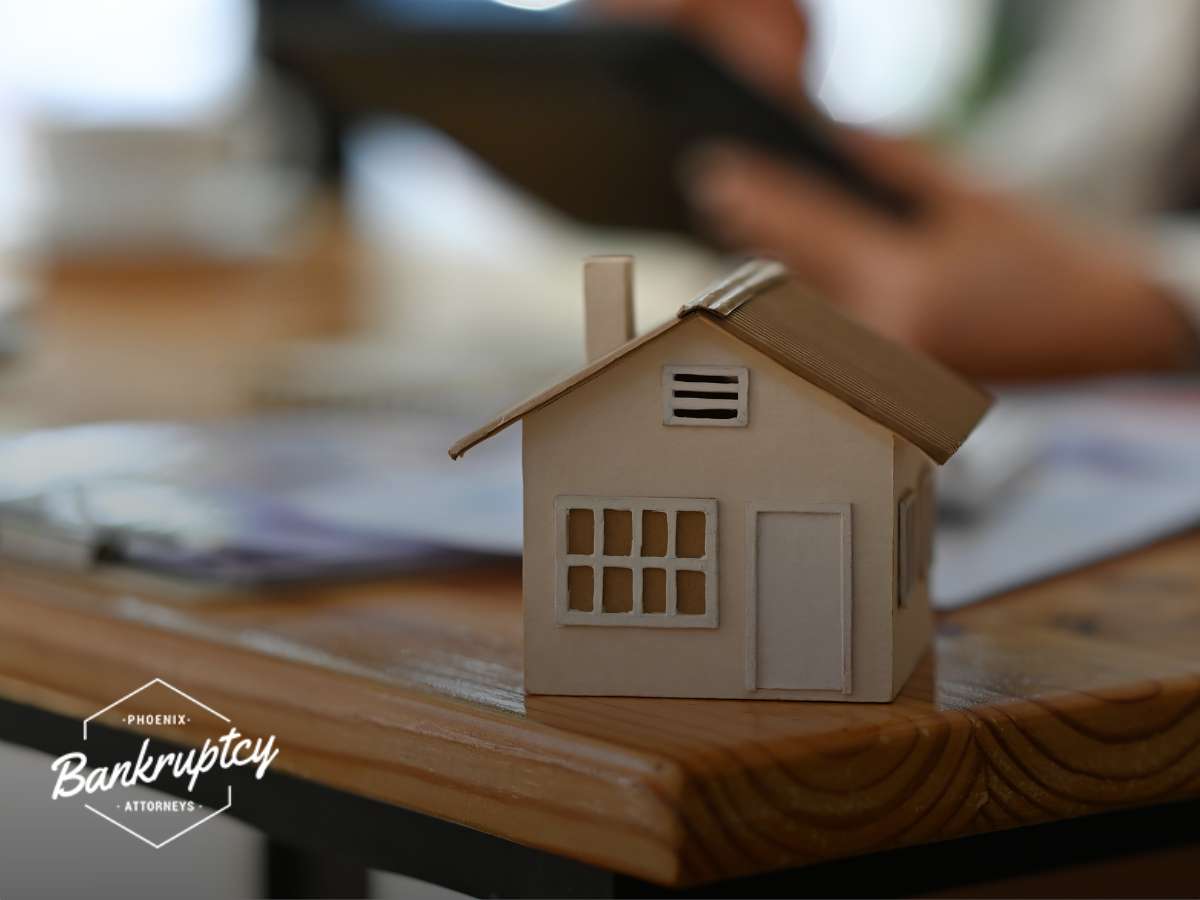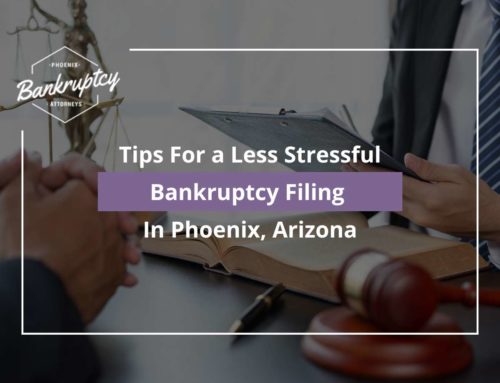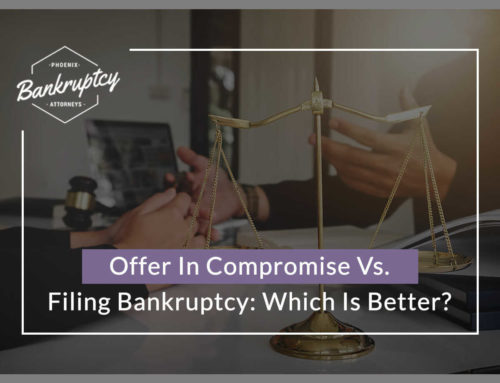How Could Bankruptcy Help You Deal With The Economic Impact Of The Housing Crisis In Phoenix?
Arizona’s housing market is mirroring trends currently seen across the country. Home prices are soaring, and so is rent. Anyone who wasn’t in a position to buy a home a few years ago probably can’t do it with how much costs have increased. That leaves many Arizonans trapped in the rental cycle. With a good portion of every paycheck going to a landlord, it can make it hard for a renter to save up enough money to buy a house- especially when rental prices increase quickly. Some cities have rental control ordinances in effect that cap rental units that meet certain specifications (e.g., built before 19XX) to a set rate, such as 3-5%. Unfortunately for renters in Arizona, no such protections are in effect. This puts many people in a situation where one emergency could put them in serious debt. If your finances are tight and you’re interested in speaking with an Arizona bankruptcy lawyer, call 480-448-9800 for your free consultation.
If you have serious debt caused by the housing crisis in Phoenix, bankruptcy could be a good option for you. Read on and learn how a bankruptcy lawyer could help you.

Rising Housing Prices, No Rent Control
We all thought we had seen enough when the pandemic raged viral and economic warfare on our country. While mask mandates may have lifted, COVID-19 is hardly eradicated. There has been an exodus of citizens from coastal cities such as Los Angeles seeking an easier and more affordable life in Arizona. Phoenix rents raised 21% in 2021, compared to 6.8% in other urban areas. There is no rent control in Phoenix, so landlords can raise rent as much as they want at the end of the lease. That leaves many renters with the options of accepting a new rent they can barely afford or moving out (which comes with extra expenses) to a cheaper home. Many Arizona renters are simply starting to get priced out with how much rents have skyrocketed of late.
Debts You May Incur as a Renter
While buying a house means a large, secured debt for most homebuyers, there are different types of debts to which renters may be more susceptible. Examples of debts common among renters include:
- Back rent: Back rent accrues when you make your rent payment late or fail to pay it at all. Most landlords will automatically tack on late fees when you pay rent in a certain period, such as 3 days late. These charges will usually also accrue interest. Depending on how strict your landlord is, they may start the eviction process once you have accrued a certain amount of back rent. If you already can’t pay your rent, eviction will only make your financial situation worse. An eviction will put you on a landlord blacklist for 7 years, making it almost impossible to rent. If you don’t have anywhere else to go, an eviction might mean homelessness. The worst part is back rent won’t go away if your landlord is successful in evicting you. That debt will remain with you- and continue to accrue interest.
- Credit card debt: When a family lives paycheck-to-paycheck, or close to it, even moderate unexpected expenses can create the need for credit cards. Unless they are paid off every month, credit card bills accrue interest at a high rate. When you’re relying on credit cards to pay for things like groceries and filling the gas tank, it may be time to reassess your financial situation. Credit card debt is unsecured and can usually be discharged in bankruptcy. Getting rid of this debt may be able to reduce your monthly expenses so you can more easily afford rent, or even start saving to buy a home. However, you will be disqualified from discharging credit card debt for several years after a bankruptcy filing, so it’s best to wait until you have stabilized your budget to file. Additionally, there are limits on how much pre-bankruptcy credit card spending can be discharged. Contact one of our bankruptcy attorneys to learn more by calling 480-448-9800.
- Medical bills: Medical insurance is likely just one of the several deductions taken out of your pay each check. However, most health insurance policies aren’t enough to protect you from high deductibles and other medical expenses. Additionally, a serious medical condition or procedure could also mean significant time off from work. Medical expenses were the number one cause of bankruptcy even before the pandemic. However, there are certain considerations when filing bankruptcy due to medical debt. For example, certain medical providers, not including emergency rooms, can deny you treatment if you have previously discharged their bills in bankruptcy.
- Unpaid utility bills: Sometimes when you move from apartment to apartment, it’s possible to switch providers and forget to cancel services at your original residence. If this goes on for too long, you can accrue a high bill, and it probably won’t be high on your priorities if you live on a tight budget. This is an example of an unsecured debt that can be discharged in bankruptcy.
Can I Rent After Bankruptcy?
A major concern for many of our clients is if filing bankruptcy will destroy their chances for future rental applications. The good news is that filing bankruptcy doesn’t automatically destroy your chances at renting in the future. Filing bankruptcy can remove extra payments you make each month on debts, giving you more income available for housing. Your credit score might even raise from filing bankruptcy. This is more likely to happen when the debtor a low to median credit score, and when they have several debts on their credit report that are dischargeable in bankruptcy. Your bankruptcy attorney can possibly show you a projected credit score if you make sound financial decisions after your discharge.
How To Improve Credit Post-Bankruptcy
There are steps you can take to make sure you build a positive credit history after bankruptcy. It might seem strange after bankruptcy but opening new lines of credit will help your credit. Your mailbox will probably be flooded with new offers after your case has been discharged. You need to review these offers carefully, and only accept those with reasonable interest rates, low annual fees, and useful benefits. Pay off all of it each month if you can, as this will help you avoid interest and keep a high revolving available credit balance.
Your car payment may be one of your credit lines that contributes to your credit score. However, after filing bankruptcy, your auto lender is no longer required to report your timely payments to the credit bureau. Missed and late payments can still be reported to damage your credit score. Depending on your specific circumstances, now might be a good chance to surrender your vehicle in bankruptcy and get a new vehicle, as a post-bankruptcy auto lender will be required to report timely payments.
To re-build credit history, you should look for credit reporting whenever possible. You may have the option for credit reporting on monthly expenses like rent, streaming services, and cell phone service. If you can budget appropriately, it may sometimes be beneficial to finance things you need to purchase just so you can get the credit reporting. This is even better if it comes with a 0% interest rate. If you file bankruptcy with Phoenix Bankruptcy Attorney, you can pay for your bankruptcy fees in 12-months of 0% interest, affordable installments. Your payment plan will include credit reporting, so you will improve your credit score as you pay off your balance. Click here to request your free consultation to see if you qualify.
PHOENIX BANKRUPTCY ATTORNEYS
PHOENIX BANKRUPTCY OFFICE
668 N. 44th St., Ste 300
Phoenix, AZ 85008
Phone: 480-263-1699
Email: info@phoenixbankruptcyattorney.co
MESA BANKRUPTCY OFFICE
1731 West Baseline Rd., Ste 100
Mesa, AZ 85202
Email: info@phoenixbankruptcyattorney.co
GLENDALE BANKRUPTCY OFFICE
20325 N. 51st Ave., Ste 134
Glendale, AZ 85308
Email: info@phoenixbankruptcyattorney.co
TUCSON BANKRUPTCY OFFICE
2 East Congress Street, Ste #900
Tucson, AZ 85701
Email: info@phoenixbankruptcyattorney.co





